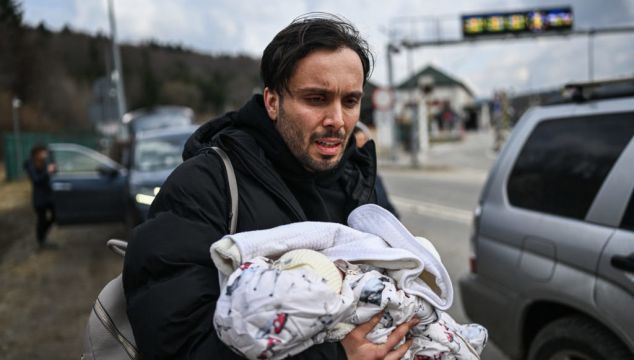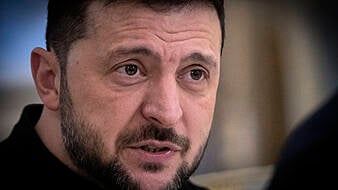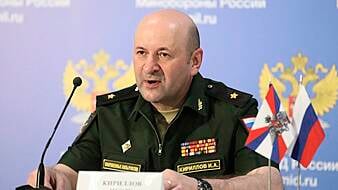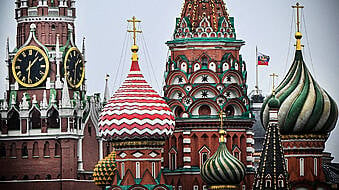People fleeing war in Ukraine poured into central Europe on Sunday, with queues at border crossings stretching back for kilometres on the fourth day of a Russian invasion that has pushed nearly 400,000 people to seek safety abroad.
With men of conscription age prevented from leaving Ukraine, it is mostly women and children arriving at the border in eastern Poland, Slovakia and Hungary and in northern and northeastern Romania.
At Beregsurany in Hungary, Valeria, a 44-year-old ethnic Hungarian from Ukraine, fretted over leaving her brother and elderly mother behind in her home town of Berehove, eight kilometres from the border.
"We would not go if we did not have to. If fate was not forcing us, we would not leave," her husband Laszlo said. The couple declined to give their full name.
Some 368,000 people have fled abroad from the fighting in Ukraine, the UN refugee agency said on Sunday, citing data provided by national authorities.
Just under half have gone to Poland. At Poland's Medyka crossing, where 40,000 people have crossed from Ukraine since Thursday, around 100 women, children and teenagers stood in line waiting to be processed by Polish border guards.

On the Ukrainian side, a queue of cars and buses stretched back some 35 kilometres (22 miles) to the town of Sudova Vyshnya.
Makeshift kitchens served hot meals alongside the road, and volunteers handed out snacks at a petrol station. Ukrainian police looked on as people walked with dogs on leashes and fathers carried children on their backs, everyone swaddled in winter clothes.
Piles of clothing lined the potholed road as people sought to lighten their load.
Once in Poland, newly arrived refugees sifted through boxes of donated sweets and toiletries, and collected fruit from makeshift stands. A trickle of cars and vans headed back for Ukraine packed with food supplies.
Kristina, a 27-year-old Ukrainian, sat in front of a grocery story in Medyka with her dog.
"We call him Dog, just Dog. Now it's a Wartime Dog," she said as she waited for a group of acquaintances to pick her up and drive away from the border.
"We came today from Lviv, sirens were wailing there. What will we do in Poland? First, we will sleep and then we will see."
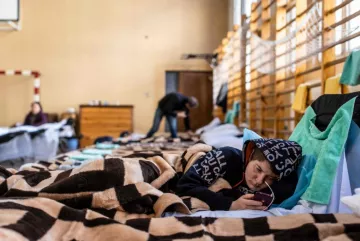
Across central Europe, authorities set up makeshift reception centres in tents where people could get medical aid and process asylum papers, while thousands of volunteers drove up to the borders with donations of collected food, blankets and clothes, offering transport services.
German railway operator Deutsche Bahn said on Sunday it would offer free of charge trips from Poland to Germany for refugees from Ukraine.
In Hungary, the immigration authority said only 10 people had applied for asylum so far, as an overwhelming majority of people who came over were ethnic Hungarians or already had the right to stay in the country. 35 people have applied for asylum in Slovakia.
Romanian authorities said about half of those who had entered the country so far, or about 20,000 people, had already left to elsewhere in Europe.
The Czech government said a train with military aid for Ukraine had arrived in Poland, loaded with machine guns, sniper rifles, pistols and artillery ammunition.
Romania will send fuel, ammunition, bullet-proof vests, helmets, military equipment, food and water worth €3 million to Ukraine and has offered to care for the wounded in military and civilian hospitals, government spokesman Dan Carbunaru said on Sunday.
